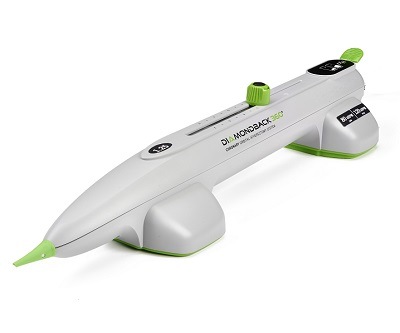
Cardiovascular Systems Inc (CSI) has submitted an application to Japan’s Pharmaceuticals and Medical Devices Agency (PMDA) for approval of its Diamondback 360 Coronary Orbital Atherectomy System Micro Crown to treat severely calcified coronary arteries for the facilitation of stent placement. A press release reports that CSI expects commercialisation beginning in calendar 2018 and is currently working to find a distribution partner in Japan.
According to the press release, the second-generation of the system builds on the technology of the first generation coronary orbital atherectomy system, which has been approved in the US since 2013. The fundamental, novel mechanism of action remains unchanged; however, the second-generation device incorporates a diamond-coated tip for immediate engagement in tight lesions. Additionally, the increased mass of the sanding crown allows for lower rotational speeds while maintaining the same orbit potential as the first generation orbital atherectomy system. The unique orbital mechanism of action for both the first and second generation orbital atherectomy system is designed to allow continuous flow of blood during treatment, which is important for both acute and long-term success.
Application for approval in Japan was made following the completion of the company’s Harmonization-By-Doing clinical study, COAST, conducted in both the USA and Japan under the regulations of both governments. COAST is a single-arm, multicentre, global investigational device exemption (IDE) study to evaluate the safety and efficacy of CSI’s next-generation orbital atherectomy system in treating patients with severely calcified coronary lesions for the facilitation of stent placement. The company completed COAST enrolment of 100 patients, including 74 patients at 12 sites in the USA and 26 patients at five sites in Japan, in July 2015. At the recent 2016 Cardiovascular Research Technologies Conference (CRT), data presented from the study showed a 30-day freedom from MACE (major adverse cardiac events) rate of 85% and a successful stent delivery rate of 99%.











